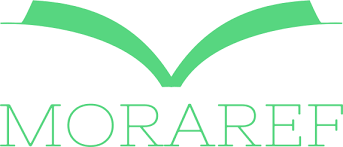Peningkatan Kompetensi Guru Bahasa Inggris melalui Pelatihan Metode Pembelajaran Berbasis Teknologi dan Manajemen Kelas di Sulawesi Selatan
Abstract
The independent learning policy by the Ministry of Education and Culture, which was followed by the birth of Reform Madrasah, requires teachers to have 21st Century learning competencies, one of which is skills in using IT in learning. In line with that, the ability to manage student-centered classes is very important so that the stigma of learning that is still teacher-centered is no longer often heard. This community service activity aims to improve the competency of Madrasah Tsanawiyah English teachers through training in technology-based learning methods to be implemented in both online and offline learning, through classroom management training to be able to create a fun and student-centered teaching and learning process, and through preparation assistance learning planning and evaluation in South Sulawesi to be able to create a well-planned and measurable learning process. The method used in this training is training by applying the CBR (Community Based Research) model approach. The training was carried out in four stages, namely laying the foundation, planning, collecting and analyzing data (gathering and analyzing information), and following up (action on finding). Participants in this activity were 2 cities and 1 district in South Sulawesi Province including Palopo City, Makassar City and Gowa Regency with a total of 40 teachers from each city and district. The process of selecting training participants is representative of the selected schools on the recommendation of the local City and District Ministry of Religion offices. The results of this training show that the competency of Madrasah Tsanawiyah English teachers increases through training in technology-based learning methods to be implemented in both online and offline learning, through classroom management training to be able to create a fun and student-centered teaching and learning process, and through preparation assistance learning planning and evaluation in South Sulawesi to be able to create a well-planned and measurable learning process.
Downloads
References
Aprianti, Nurah. 2021. Pengaruh Model Pembelajaran Team Games Tournament (TGT) Dengan Media Roda Pintar Terhadap Motivasi Berprestasi Siswa Pada Materi Bangun Datar Kelas IV Di UPTD SD Negeri Campor 2. Program Studi Pendidikan Guru Sekolah Dasar, STKIP PGRI Bangkalan.
Banks, Sarah. 2012. Community Based Participatory Research A Guide to Ethical Principles and Practice. Durham University: Center for Social Justice and Community Action.
Centre for Community Based Research (CCBR) (formerly Centre for Research and Education in Human Services). 2004. Good practice and resource guide: Community needs assessments and service evaluations in Military Family Resource Centres by R Janzen, M Hatzipantelis, J Vinograd, M Kellerman & O Kitchener.
Ismah, Atifatul. 2020. Learning styles and the teacher's teaching strategies in SMPN 12 Malang. Universitas Negeri Malang.
Pujiani, Rejo. T., Nisa, K., & Soali, M. 2020. Pelatihan TOEFL online melalui media youtube untuk santri pondok pesantren darussalam purwokerto. Jurnal Pengabdian Pada Masyarakat.
Rosyada, Dede. 2016. Community Based Research CBR) Salah Satu Model Penelitian Akademik. Official Blog.
Sabon, Simon Sili. 2017. Kajian Kesiapan Kompetensi Gurubahasa inggris smp untuk mendukung implementasi Kurikulum 2013 (K-13). Jakarta: Peneliti pada Pusat Penelitian Kebijakan Pendidikan dan Kebudayaan, Balitbang, Kemendikbud.
Sari, F. M. 2020. Exploring English learners’ engagement and their roles in the online language course. Journal of English Language Teaching and Linguistics.
Tim Penyusun Panduan CBR. 2015. Panduan Merancang dan Melaksanakan Penelitian Bersama Komunitas. Surabaya: UIN Sunan Ampel Surabaya.
Copyright (c) 2023 Annisa Shofa Tsuraya, Nur Aliyah Nur, Muhammad Syahruddin Nawir, Indah Fadhilah Rahman, Sitti Nurpahmi

This work is licensed under a Creative Commons Attribution-ShareAlike 4.0 International License.
- Authors retain copyright and grant the journal right of first publication with the work simultaneously licensed under a Creative Commons Attribution License that allows others to share the work with an acknowledgement of the work's authorship and initial publication in this journal.
- Authors are able to enter into separate, additional contractual arrangements for the non-exclusive distribution of the journal's published version of the work (e.g., post it to an institutional repository or publish it in a book), with an acknowledgement of its initial publication in this journal.
- Authors are permitted and encouraged to post their work online (e.g., in institutional repositories or on their website) prior to and during the submission process, as it can lead to productive exchanges, as well as earlier and greater citation of published work (See The Effect of Open Access).








